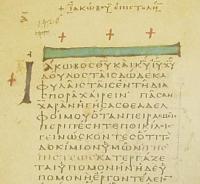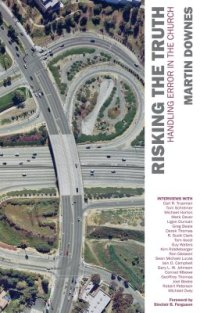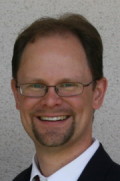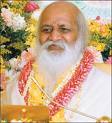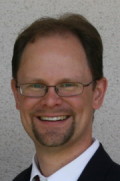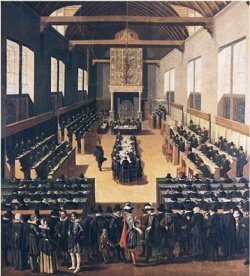 Article 16: Regeneration's Effect
Article 16: Regeneration's Effect
However, just as by the fall man did not cease to be man, endowed with intellect and will, and just as sin, which has spread through the whole human race, did not abolish the nature of the human race but distorted and spiritually killed it, so also this divine grace of regeneration does not act in people as if they were blocks and stones; nor does it abolish the will and its properties or coerce a reluctant will by force, but spiritually revives, heals, reforms, and--in a manner at once pleasing and powerful--bends it back. As a result, a ready and sincere obedience of the Spirit now begins to prevail where before the rebellion and resistance of the flesh were completely dominant. It is in this that the true and spiritual restoration and freedom of our will consists. Thus, if the marvelous Maker of every good thing were not dealing with us, man would have no hope of getting up from his fall by his free choice, by which he plunged himself into ruin when still standing upright.
_______________________________
In article sixteen we are reminded once again that without the grace of God acting upon us and in us (when we were dead in sin), we would forever remain unbelievers. Even though the effects of sin are all-pervasive, nevertheless, the imago Dei remains in us, although badly defaced.
That the remnant remains can be proven from a number of biblical texts. In Ephesians 4:24, Paul speaks of the Christian “putting on the new self”—which is clearly a reference to the regenerate new man is a description of being restored to the true righteousness and holiness we lost in the Fall. In Colossians 3:10, Paul reiterates much the same thing, this time mentioning that putting on the new self includes the restoration of true knowledge.
In some sense then regeneration restores particular aspects of the imago Dei, things which had been lost in the fall, including true righteousness, true knowledge, and true holiness. Therefore, putting on the new-self is, in part, descriptive of the restoration of fallen human nature.
There is other biblical evidence that strongly argues for the fact that even though sin has brought horrific damage upon the human race, nevertheless, fallen men and women do retain the image of God. When we consider the words of Moses in Genesis 9:6, it is clear that the taking of a life is a great sin, since the one killed retains the image of God, even after the fall. In James 3:9, James makes the same point, when he says that when we curse another person, we sin because the person we curse with our tongue, even as fallen, remains in the image of God.
As a result of Adam’s act of rebellion, the good gifts given in creation are completely distorted and defaced, although we still remain human and retain the image of God. Given the damage wrought upon human nature by Adam’s act of rebellion, it is God, therefore, who must bend us back, to pick up on a point made so powerfully by Luther.
The consequence of the effects of the fall is that our wills are completely enslaved to sin and we struggle to make sense of God’s world with our darkened understanding. As Paul puts it in Ephesians 4:18-19, men and women “are darkened in their understanding, alienated from the life of God because of the ignorance that is in them, due to their hardness of heart. They have become callous and have given themselves up to sensuality, greedy to practice every kind of impurity.” The point is that after effectual calling, regeneration, and conversion have taken place, our struggle to come to faith is nevertheless real and difficult. But since God regenerates men and women and makes them new, grace will always prevail and God’s elect will inevitably come to faith in Jesus Christ.
This means that some will come to faith merely when hearing the gospel for the first time—as they had always believed as much, but had never heard it expressed. Others will struggle with doubt, or certain “besetting sins,” and will come to faith with tears, and only after prolonged and intense struggle. Still others will be called to faith from infancy, and never know unbelief for even a moment (2 Timothy 3:15 comes to mind).
But despite our struggle because of our sin, calling and regeneration are efficacious, and the person made alive by God the Holy Spirit will indeed come to faith in Christ. As Paul says in Romans 11:29, the gifts and calling of God are irrevocable. It is in this sense that we speak of grace as “irresistible.”
This does not for a moment mean that grace cannot be resisted. But it does mean that God’s sovereign grace will ultimately triumph over unbelief. This is God’s effort, and we who are effectually called, made alive in Christ, and converted, no matter how greatly we struggle, will at last embrace the savior through faith.
We are also reminded that such grace renews our fallen wills, restores our spiritual sight—what is known as illumination (1 Corinthians 2:10-16)—and bends us back from being curved in upon ourselves. As a result of calling, regeneration, and conversion we now believe the gospel and we will come alive to all of God’s commandments, for our heart of stone is sovereignly turned into a heart of flesh as the law is now written upon our hearts. As Paul teaches us in Galatians 5, as Christians, we walk in the Spirit and no longer walk in the flesh—although we will struggle with indwelling sin until the day we die, or Jesus Christ comes back, whichever comes first.
This would never be the case, if Arminianism were true, and God left us on our own, expecting us to save our selves by taking avail of a provisional, and not effectual grace. This is why we must acknowledge that this is God’s doing not ours! "For if the marvelous Maker of every good thing were not dealing with us, man would have no hope of getting up from his fall by his free choice, by which he plunged himself into ruin when still standing upright."
 Wednesday, May 6, 2009 at 09:41AM
Wednesday, May 6, 2009 at 09:41AM 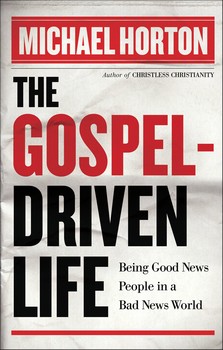 Here's the pre-publication info (from Baker) on MIke Horton's latest book, The Gospel-Driven Life. No, Michael doesn't sleep, and the book is due out in October.
Here's the pre-publication info (from Baker) on MIke Horton's latest book, The Gospel-Driven Life. No, Michael doesn't sleep, and the book is due out in October.

